Modern rehab programs offer you a highly personalized treatment experience that combines cutting-edge technology with evidence-based therapies. You'll receive customized care plans based on genetic profiling, AI-powered relapse prevention, and virtual recovery support. Treatment integrates mental health services, family involvement, and sustainable support networks while utilizing advanced tools like VR therapy and digital monitoring platforms. Understanding these detailed approaches will reveal how today's recovery programs deliver more effective, lasting outcomes.
The Evolution of Personalized Treatment Strategies

While traditional addiction treatment once followed a one-size-fits-all model, personalized recovery strategies have revolutionized how rehabilitation programs approach individual care. You'll find today's essential treatment plans incorporate multiple evidence-based approaches tailored to your specific needs. These strategies often include genetic profiling to determine medication responses and psychedelic-assisted therapies for processing trauma and addiction patterns. Detailed assessments help treatment providers develop comprehensive care strategies that address physical health, mental wellness, and social circumstances. Innovative programs now utilize cutting-edge technology to monitor patient progress and predict potential triggers in real-time. Understanding that co-occurring disorders often accompany addiction has led to more sophisticated treatment protocols.
Modern programs emphasize the integration of aftercare planning from day one, ensuring you're connected with community resources and support systems that match your lifestyle and recovery goals. Family involvement plays a pivotal role, with programs adapting treatment approaches based on your progress and changing needs. This evolution in personalized care means you'll receive ongoing professional support that's continuously modified to optimize your transformative journey.
Technology-Enhanced Recovery Programs
In 2025, digital platforms are transforming treatment through virtual recovery assistants and specialized apps that provide real-time support. You'll find AI-powered interventions analyzing your behavioral patterns to predict relapse risks and adjust treatment strategies accordingly. Digital peer-to-peer forums connect you with global support networks, while GPS-enabled apps alert you when approaching high-risk locations. Online support communities provide continuous motivation and milestone tracking for sustained recovery success. The integration of behavioral interventions through mobile apps helps users develop healthier coping mechanisms and thought patterns.
Wearable devices now monitor your critical signs and stress levels, sending immediate alerts during craving episodes. Virtual reality exposure therapy helps you develop coping strategies in controlled environments, while telehealth services expand access to professional care regardless of location. These technological advancements are making recovery more accessible, personalized, and effective than ever before, remarkably reducing treatment costs while maintaining high standards of care. The integration of trauma-informed care has become a fundamental component across all digital treatment platforms, ensuring a comprehensive approach to healing.
Integrating Mental Health With Addiction Treatment

Beyond technological solutions, modern addiction treatment recognizes the inseparable link between mental health and substance use disorders. With nearly 50% of individuals experiencing co-occurring conditions, you'll find expansive treatment approaches that address both challenges simultaneously. Today's collaborative care models integrate multidisciplinary teams of addiction specialists and psychiatric professionals who work together to deliver personalized interventions. Healthcare providers must now follow stricter treatment guidelines to ensure consistent quality of care across all facilities. The integration of cognitive behavioral therapy alongside other therapeutic modalities helps develop healthier coping mechanisms and prevent relapses. Modern programs emphasize meeting clients where they are to create more effective, individualized treatment plans.
Family-focused interventions now play a vital role in 2025's integrated treatment terrain, supported by expanded Medicaid coverage and CHIP parity mandates. You'll benefit from holistic care that combines pharmacological treatments with behavioral therapies, while the 988 Lifeline system guarantees immediate crisis support. Treatment providers receive specialized training in identifying comorbidities and implementing evidence-based practices, ensuring you get coordinated care that targets both your mental health and substance use needs simultaneously.
Building Sustainable Support Networks
To sustain long-term recovery success, modern rehabilitation programs emphasize building resilient support networks that extend well beyond the treatment facility. Research shows that individuals are twice as likely to maintain their recovery with robust support systems in place. Family members provide shared accountability through structured involvement in the recovery journey. You'll find that 2025's recovery programs integrate professional support structures with community-based partnerships, creating thorough systems that address both clinical and social needs.
Your support network will include counselors, peer mentors, and fellow recovery group members, while workforce development initiatives help you build career skills and financial stability. These connections actively promote social learning behaviors through positive role modeling and healthy coping demonstrations. You'll participate in regular support meetings, both in-person and virtual, while maintaining connections through digital platforms. Professional clinical partnerships guarantee you receive coordinated care between your medical providers and peer support networks. Through volunteer opportunities and recovery advocacy roles, you'll strengthen your network while contributing to the broader recovery community.
Evidence-Based Therapies and Modern Applications

Modern rehabilitation programs now integrate an extensive array of evidence-based therapies with cutting-edge technological applications to optimize treatment outcomes. You'll find that traditional approaches like CBT and DBT are improved through neuromodulation techniques, including TMS and tDCS, while medication combination strategies paired with VR therapy show remarkable 67% success rates. Leading treatment centers like American Addiction Centers utilize advanced security measures to protect patient data and privacy. Recovery programs now employ AI-powered chatbots that deliver immediate support during crisis moments. Patients also benefit from experiential activities through art and music therapy sessions to process complex emotions.
Key advances in evidence-based treatment include:
- Personalized biomarker-guided therapy for precise treatment matching
- Virtual reality integration for real-time coping skill development
- Combined pharmacological and behavioral interventions targeting specific brain circuits
- Technology-assisted group therapy through secure social media platforms
These innovations allow for more targeted interventions while addressing co-occurring disorders. The integration of GLP-1 agonists and orexin antagonists, combined with established therapies, provides an inclusive approach to managing substance use disorders and preventing relapse.
Frequently Asked Questions
What Is the Average Success Rate of Modern Rehab Programs?
You'll find that modern rehab programs show varying success rates, with about 68% of patients completing detox reporting positive outcomes. For effective addiction prevention, programs achieve roughly 42% full completion rates nationally, while Florida leads with 70%. You can expect around 76% abstinence at 3 months post-treatment, though this decreases to 70% by 9 months. With reliable relapse monitoring, programs acknowledge that 40-60% of patients may experience setbacks during recovery.
How Much Does a Comprehensive Recovery Treatment Program Typically Cost?
When considering financial considerations for extensive recovery treatment, you'll find costs vary greatly. For inpatient care, you can expect to pay between $6,000-$30,000 for a 30-day program. The treatment cost breakdown typically includes $1,750+ for detox, followed by core rehabilitation services. Outpatient options are more affordable, ranging from $2,000-$19,500. If you're seeking prolonged care with residential treatment, costs can reach $50,000-$57,000 with additional sober living expenses around $1,500-$2,000 monthly.
Are Religious or Spiritual Components Included in Current Treatment Approaches?
Yes, you'll find that many treatment programs now integrate religious and spiritual components as part of their holistic healing methods. These can include faith-based counseling, meditation, prayer sessions, and scripture study for those who desire it. Spiritual counseling is often offered as an optional component, respecting diverse beliefs while providing support for those who find strength in faith. Research shows these spiritual elements can bolster recovery outcomes when combined with evidence-based treatments.
What Percentage of Patients Require Multiple Treatment Episodes Before Achieving Recovery?
You'll likely need multiple treatment episodes, as research shows 75% of individuals achieve recovery through repeated attempts. For opioid users specifically, you can expect an average of 8.48 treatment episodes before sustained recovery. Your success depends heavily on relapse prevention strategies and personalized treatment plans adapted to your needs. It is crucial to understand that recovery isn't linear - each attempt builds skills and resilience, contributing to your long-term success.
How Long Do Patients Typically Stay in Residential Treatment Facilities?
Your typical stay duration in residential treatment facilities varies based on your specific needs. While standard programs often start at 30 days, you'll find that treatment lengths commonly extend to 60-90 days for more extensive care. If you're dealing with severe addiction or co-occurring disorders, you might need extended residential stays of 6-12 months. Residential facility capacity often influences program length, but most centers prioritize clinical necessity over bed availability when determining stay duration.






